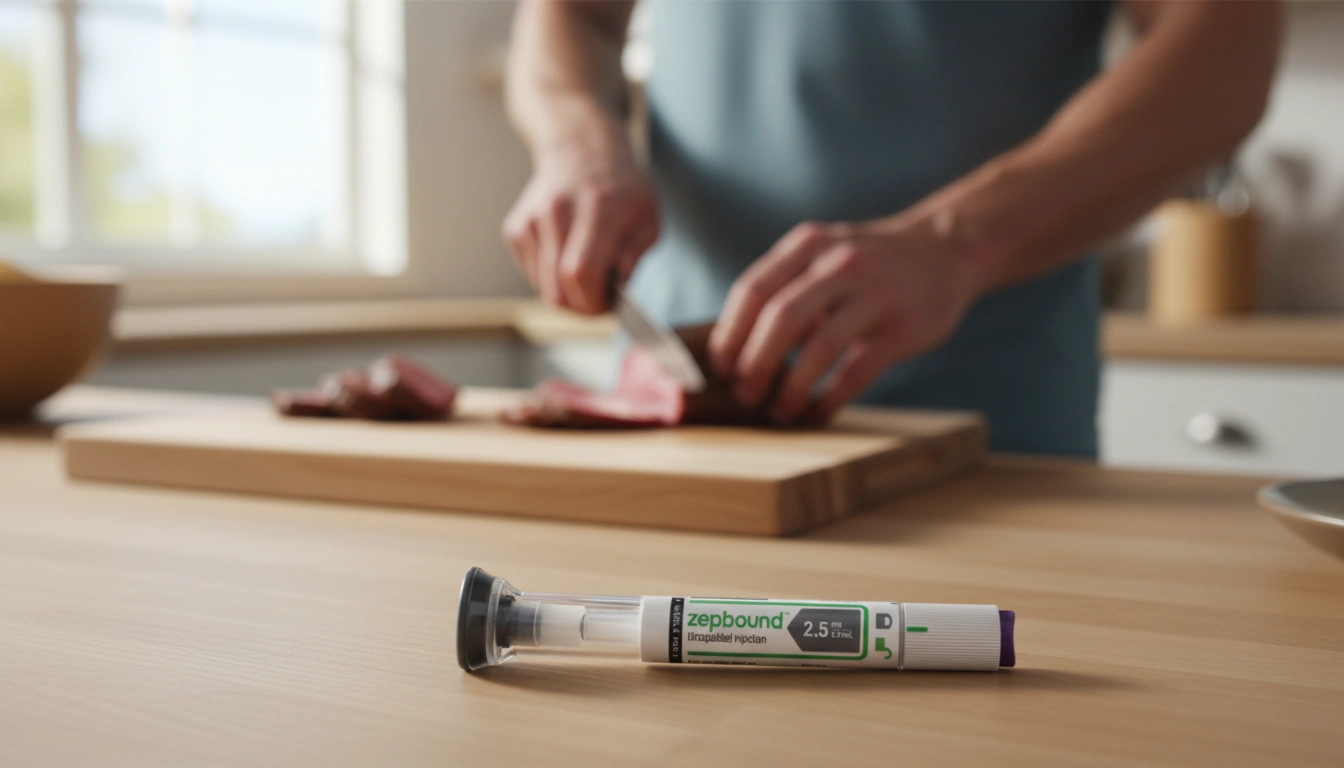What is Zepbound Injection? A Comprehensive Guide to Understanding this Weight Loss Solution

Have you ever felt overwhelmed by the challenges of managing your weight? You’re not alone. In fact, approximately 70% of American adults are either overweight or obese, often facing a host of health-related issues as a result. This staggering statistic underscores the urgent need for effective weight management solutions. One such innovative treatment gaining attention is Zepbound, an injectable medication designed to assist individuals in losing weight and maintaining a healthier lifestyle.
In this blog post, we will explore the ins and outs of Zepbound injection, including what it is, how it works, its potential benefits, and important safety information. By the end of this article, we aim to provide you with a thorough understanding of Zepbound and how it may play a role in your weight loss journey.
Introduction
Weight management is a complex and often frustrating endeavor for many people. With various diets, workout plans, and supplements flooding the market, it can be challenging to find a solution that truly works. Amidst this confusion, Zepbound has emerged as a promising option for those struggling with obesity or overweight issues.
Zepbound, also known as tirzepatide, is a prescription medication that has been clinically tested for its effectiveness in promoting weight loss when used in conjunction with a reduced-calorie diet and increased physical activity. As we delve deeper into this topic, we will not only clarify what Zepbound is but also examine its mechanism of action, dosage guidelines, side effects, and more.
Our goal is to equip you with valuable knowledge about Zepbound, empowering you to make informed decisions about your health and wellness. Whether you're considering this treatment for yourself or simply curious about the latest advancements in weight management, we invite you to explore this comprehensive guide with us.
Understanding Zepbound
What is Zepbound?
Zepbound is an injectable medication that falls under a class of drugs known as GLP-1 (glucagon-like peptide-1) receptor agonists. It is specifically designed to help adults with obesity or overweight—particularly those with weight-related medical conditions—achieve significant weight loss and maintain that weight loss over time.
The active ingredient in Zepbound, tirzepatide, works by mimicking the effects of natural hormones in the body that regulate appetite and food intake. By enhancing feelings of fullness and reducing hunger, Zepbound aids individuals in making healthier food choices and consuming fewer calories.
How Does Zepbound Work?
Zepbound functions through its dual action as both a GLP-1 and GIP (glucose-dependent insulinotropic polypeptide) receptor agonist. Here’s how it works:
- Appetite Regulation: By activating GLP-1 receptors in the brain, Zepbound helps individuals feel fuller after eating, which can lead to reduced caloric intake.
- Glycemic Control: Zepbound also influences insulin secretion and glucose metabolism, helping to stabilize blood sugar levels and support overall metabolic health.
- Slowed Gastric Emptying: This medication slows down the rate at which food leaves the stomach, prolonging the sensation of fullness and further aiding weight management.
Together, these mechanisms make Zepbound a powerful tool for weight loss, especially when combined with lifestyle modifications such as a balanced diet and regular physical activity.
Who Can Benefit from Zepbound?
Zepbound is primarily indicated for adult patients who have:
- A body mass index (BMI) of 30 kg/m² or greater, indicating obesity.
- A BMI of 27 kg/m² or greater with at least one weight-related comorbidity, such as type 2 diabetes or hypertension.
Before starting Zepbound, it is essential for individuals to consult with a healthcare provider to determine if this treatment is appropriate for their specific circumstances.
Dosing and Administration
How to Use Zepbound
Zepbound is administered through a subcutaneous injection, meaning it is injected under the skin. Here’s how to properly use Zepbound:
- Choose Your Injection Site: Zepbound can be injected into the abdomen, thigh, or upper arm. It is important to rotate injection sites to prevent irritation.
- Dosage Guidelines: Zepbound is typically started at a low dose of 2.5 mg once weekly. After four weeks, the dose may be increased to 5 mg, with potential further increases to 10 mg or 15 mg based on individual needs and tolerance. The maximum recommended dose is 15 mg once weekly.
- Injection Preparation: Before using, ensure the Zepbound pen or vial is stored in the refrigerator and is not expired. Follow instructions for proper injection technique, including cleaning the injection site and disposing of used needles safely.
Safety Precautions
Before starting Zepbound, it is crucial to discuss your medical history with your healthcare provider. Some conditions that may affect your eligibility for Zepbound include:
- A personal or family history of medullary thyroid carcinoma (MTC) or Multiple Endocrine Neoplasia syndrome type 2 (MEN 2).
- Severe gastrointestinal disease or pancreatitis.
- A history of severe allergic reactions to tirzepatide or any of its ingredients.
Additionally, if you are pregnant or breastfeeding, inform your healthcare provider to determine the best course of action.
Common Side Effects
Like any medication, Zepbound may cause side effects. It is essential to be aware of these potential reactions so that you can respond appropriately if they occur. Some common side effects of Zepbound include:
- Nausea
- Diarrhea or constipation
- Vomiting
- Stomach pain
- Fatigue
- Injection site reactions (redness, swelling, or irritation)
Most side effects are mild to moderate and tend to decrease over time as the body adjusts to the medication. However, if you experience severe or persistent side effects, it is crucial to contact your healthcare provider.
Serious Side Effects
While serious side effects are less common, they can occur. It is vital to seek immediate medical attention if you experience any of the following:
- Signs of thyroid tumors (such as a lump or swelling in the neck)
- Severe stomach pain or persistent vomiting
- Symptoms of pancreatitis (severe pain in the upper abdomen that radiates to the back)
- Low blood sugar (hypoglycemia), especially if you are also taking insulin or other diabetes medications
Conclusion
Zepbound presents a promising option for individuals seeking effective weight management solutions. By leveraging the power of tirzepatide to regulate appetite and support metabolic health, this injectable medication can be an essential tool in the journey toward achieving and maintaining a healthier weight.
At TrimRx, we understand that everyone's weight loss journey is unique. That’s why we emphasize personalized care and encourage individuals to take our free assessment quiz to explore tailored treatment plans that may include medications like Zepbound.
We also offer quick-access supplements, such as our GLP-1 Daily Support and Weight Loss Boost, to support overall wellness during your weight loss journey.
If you're considering Zepbound or want to learn more about how our personalized weight loss programs can support you, we invite you to take our free assessment quiz today. Together, we can work towards achieving your health and wellness goals.
FAQ
How long does it take to see results with Zepbound?
Many patients begin to notice weight loss within the first few weeks of treatment. Optimal results are typically observed after several months of consistent use in conjunction with a reduced-calorie diet and increased physical activity.
Can Zepbound be used alongside other weight loss medications?
Zepbound should not be used with other tirzepatide-containing products or GLP-1 receptor agonists. Always consult your healthcare provider before combining medications.
Is Zepbound suitable for everyone?
No, Zepbound is not suitable for individuals with certain medical conditions, including a personal or family history of thyroid cancer or pancreatitis. A thorough medical evaluation is essential before starting treatment.
What should I do if I miss a dose of Zepbound?
If you miss a dose and it’s been less than four days, take it as soon as you remember. If it’s been more than four days, skip the missed dose and resume your regular dosing schedule.
Where can I find more information about Zepbound?
For more information about Zepbound, including detailed safety information and instructions for use, you can visit the manufacturer’s website or consult your healthcare provider.
By understanding the purpose and function of Zepbound, you can make informed decisions about your weight loss journey and explore personalized options that align with your goals.

Transforming Lives, One Step at a Time
Keep reading
Navigating Your Path: How Many Doses Are In Zepbound and What It Means for Your Health Journey
Curious how many doses are in Zepbound? Discover its weekly dosing schedule, available strengths, and titration process for effective weight loss. Learn more!
Navigating Your Zepbound Journey: Understanding Dosing and Expert Guidance
Wondering how to split doses of Zepbound? Learn why it’s unsafe & not recommended. Get expert guidance on Zepbound dosing for safe, effective weight loss with TrimRx. Click to learn more!
Understanding Zepbound Dosing: What is the Lowest Dose Available for Your Weight Loss Journey?
Curious what is the lowest dose of Zepbound available? Learn about Zepbound’s 2.5mg starting dose, titration, and safe use for weight loss. Get expert guidance!



